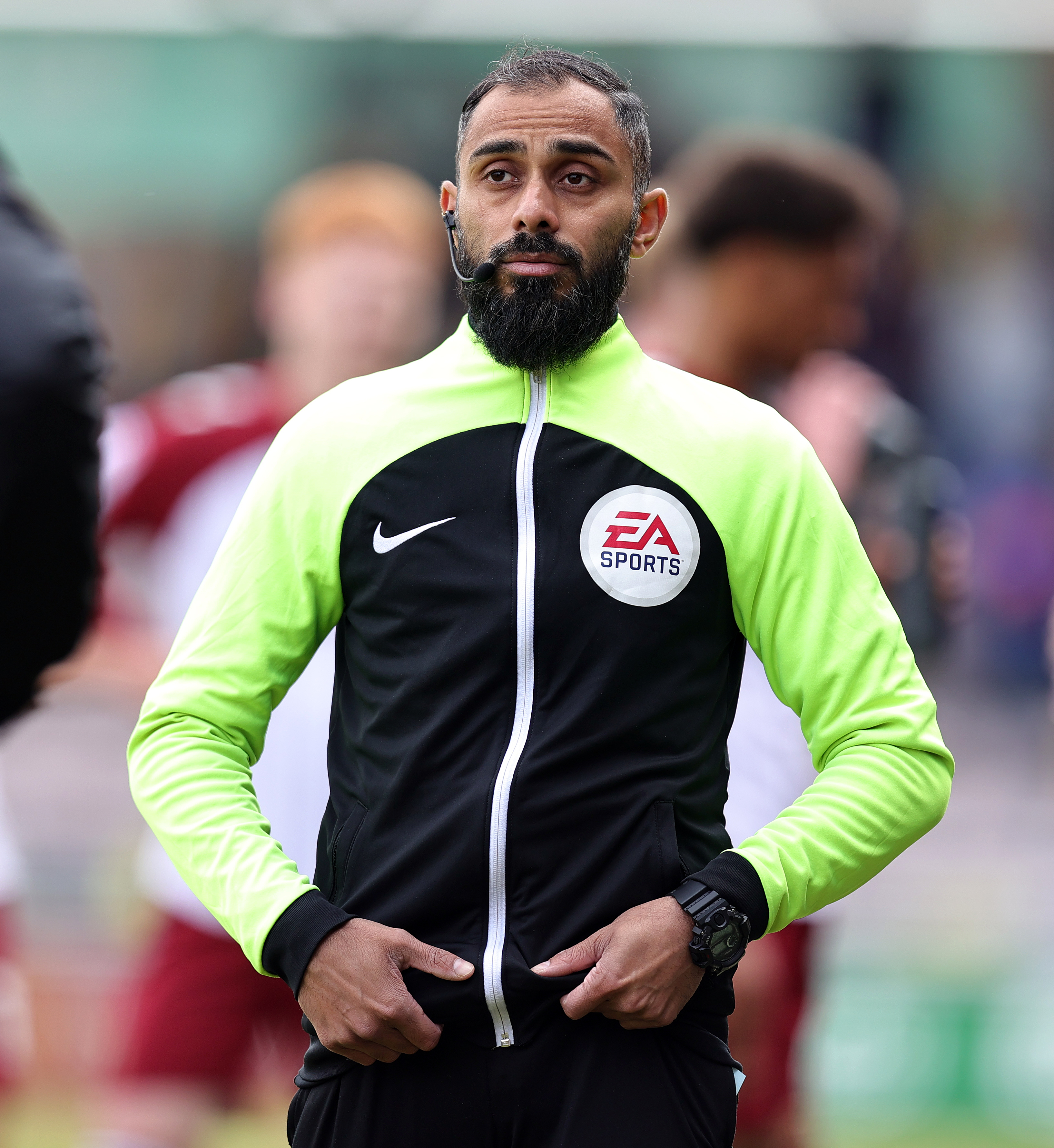But despite facing barriers on the path to success, the EFL assistant referee is now a role model to the next generation of Muslim match officials.
As PGMOL continue to take steps to diversify officiating and following the launch of a new partnership between PGMOL and Kick It Out to provide match officials with access to EDI educational sessions, he told us about his journey in the game.
Tell us about your match officiating journey so far?
I took up refereeing when I was in college at the suggestion of my college PE teacher. After a few years, I realised I enjoyed the whole matchday experience and being involved in the game that I love.
By focusing on my refereeing, keeping myself fit and up to date on the relevant laws and amendments, I knew I could elevate myself to a higher standard.
I enjoy being part of a team, meeting like-minded people who also love football and playing a huge role in such a high-profile spectacle that means so much to so many people.
How do you feel about being a role model for the next generation of Muslim match officials?
Being considered a role model makes me incredibly proud. To know that I am considered a role model is something that I, my family and my community can all be proud of. A large part of my religion is to serve my community and becoming a match official is an incredible opportunity to do that.
To show that I am providing a service like this to not only the footballing community, but representing my own community in the process, will help to highlight to the rest of the Muslim community what is possible if you push yourself to achieve your dreams.
Seeing a Muslim on the television, or at a live game, will hopefully highlight to other young children, both Muslim and non-Muslim, to feel as though there are no barriers to them being involved in the professional game.

How important is it for football to diversify their workforces?
It is incredibly important to help to break down barriers to success.
Not only religiously, but also, ethnically, I have faced many barriers in my life.
Growing up, I have been victimised by large groups where I have inevitably been outnumbered, in terms of ethnic appearance and religious background.
Having a more diverse workforce is incredibly important as it naturally encourages those working within it to be curious, ask questions, learn more about each other, and better understand each other’s backgrounds, cultural differences, religious beliefs, and way of life.
What’s it been like seeing officials from under-represented communities shine in the professional game?
It is something that I never thought I would see in my lifetime. I believe that the FA and PGMOL have been, and still are, taking huge strides to balancing the equality of opportunities to those from underrepresented backgrounds.
I regularly see initiatives to address the problems that exist and create a more accessible-for-all environment, which is heart-warming to see and to be a part of.
How can clubs become more inclusive for Muslim officials?
I believe that the biggest barriers at clubs for Muslim officials are prayer rooms, or somewhere quiet to pray and reflect before and after a game, as well as clubs understanding and support of Ramadan.
Clubs should actively be encouraged to promote Ramadan and educate supporters and social media followers that Muslims break their fast at hours when there are occasional conflicts with matches.
As a result, it should not be seen as an extraordinary event when a Muslim breaks their fast during matches. But should be considered perfectly normal.
Very recently, this has been highlighted and supported extremely well, but this needs to continue and be supported by the powers in charge to encourage a “drinks break.” This should be where all players can take two minutes to take energy onboard and continue to do their job, regardless of their role within the game.
Clubs could also use social media to show their own staff/players breaking their fast, thus showing other supporters that it’s not just match officials who need to break their fast, but members of their own team. I believe this would gain more respect from fans, more quickly.